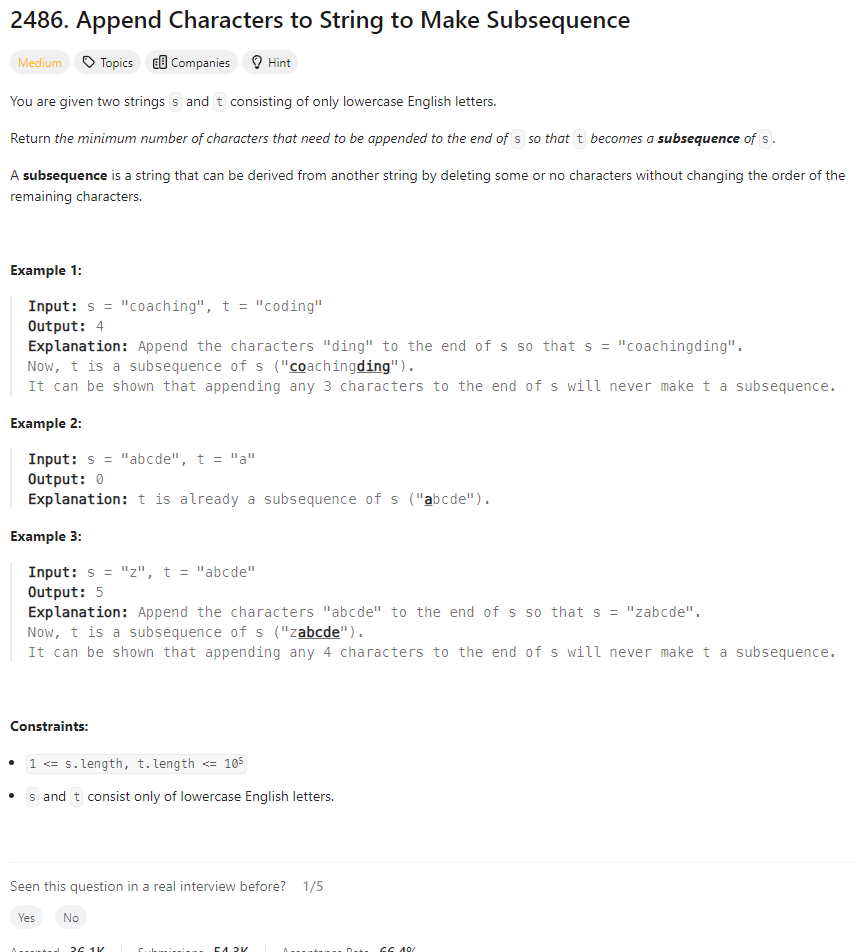Problem of The Day: Append Characters to String to Make Subsequence
Problem Statement

Brute Force - TLE
class Solution:
def appendCharacters(self, s: str, t: str) -> int:
res = float('inf')
s_len = len(s)
t_len = len(t)
for i in range(s_len):
for j in range(i, s_len):
l = j
k = 0
if s[l] == t[k]:
while k < t_len and l < s_len:
if s[l] == t[k]:
k += 1
l += 1
res = min(res, t_len - k)
return res if res != float('inf') else 0
- Time: O(s_len x s_len x t_len)
- Space: O(s_len ^ 2 x t_len)
Intuition
When I first looked at this problem, I thought about how I can find the minimum number of characters I need to append to the string s to make t a subsequence of s. The goal is to efficiently traverse both strings and determine the necessary number of additional characters.
Approach
My approach involves a two-pointer technique. I use one pointer to traverse s and another pointer to traverse t. I increment both pointers when the characters at their current positions match. If the characters don’t match, I only increment the pointer for s. This way, I effectively find how much of t can be matched by s without any additions. The difference between the length of t and the number of characters matched gives the result.
Complexity
- Time complexity: The time complexity of my approach is (O(n + m)), where (n) is the length of
sand (m) is the length oft. This is because we traverse each string at most once. - Space complexity: The space complexity of my approach is (O(1)) because I only use a fixed amount of extra space for the pointers and a few variables.
Code
class Solution:
def appendCharacters(self, s: str, t: str) -> int:
s_len = len(s)
t_len = len(t)
s_idx, t_idx = 0, 0
while s_idx < s_len and t_idx < t_len:
if s[s_idx] == t[t_idx]:
t_idx += 1
s_idx += 1
return t_len - t_idx
Editorial
class Solution:
def appendCharacters(self, s: str, t: str) -> int:
first = 0
longest_prefix = 0
while first < len(s) and longest_prefix < len(t):
if s[first] == t[longest_prefix]:
# Since at the current position both the characters are equal,
# increment longest_prefix by 1
longest_prefix += 1
first += 1
# The number of characters appended is given by the difference in length of t
# and longest_prefix
return len(t) - longest_prefix
- Time: O(n)
- Space: O(1)